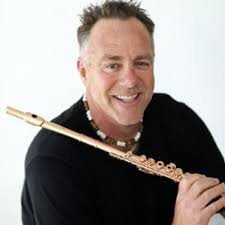An Evening with the Intrepid La Jolla Symphony
Saturday evening’s concert of the La Jolla Symphony at UC San Diego’s Mandeville Auditorium dispelled at least two hoary notions:
a) Programming new and contemporary music is anathema to filling a hall. The place was packed on Saturday night, and most of the pieces were of recent vintage.
b) A volunteer, community orchestra is incapable of playing as well as a fully professional one. Yet, the symphony’s performance of György Ligeti’s “Atmosphères” was as good as I have heard from any professional orchestra.
The world premiere of Erik Griswold’s “Jeux à la fin du monde” opened the concert. Griswold, a UC San Diego alumnus with a Ph.D. in Composition claims to have used Debussy’s “Jeux” and Lutoslawski’s “Jeux vénitiens” as starting points. I found the work much more reminiscent of late Stravinsky (think “Agon” or “Danses Concertantes”) than either Debussy or Lutoslawski.
Music Director Steven Schick’s legendary punctiliousness insured that what we heard from the orchestra was a pretty fair representation of the score. I had the sense, on the other hand, that the players themselves were in the unenviable position of someone reading a previously unknown text aloud: although the words may have been correct, the sense of cogent narrative lacked.
The La Jolla Symphony musicians, nonetheless, met the challenge of this world premiere gamely. The resulting piece showed itself to be highly episodic with radically differing sections. Developmental clarity was, unfortunately, sorely lacking. I hope that in the future, Griswold will also consider thinning the orchestration and perhaps think about collaborating with a choreographer. The piece, to my ears, screamed for dancers.
Philip Glass’s Piano Concerto No. 2 (“after Lewis and Clark”) featured the masterful playing of pianist Lisa Moore. After forty years of listening, I have yet to enjoy a work of Glass’s. His approach to minimalism or “process music” has always seemed simplistic and predictable. Compared to, say, Steve Reich or John Adams, I find Glass meandering. His works are obviously the creation of a first class craftsman who utilizes his motivic material skillfully.Despite severe balance problems in the opening movement between the piano and the orchestra, Schick’s unassailable rhythmic sense and Moore’s colorful, clean technique were a joy to behold. With such a solid time “feel” from both performers, I would probably enjoy listening to the two of them simply playing scales and arpeggios together, which is pretty much how this piece sounded. The second movement, a duet between piano and Native American flute played by Principal Flutist Elena Yarritu, also suffered from balance problems. The flute was hard to hear and its intonation left much to be desired.
The pièce de résistance, György Ligeti’s “Atmosphères” from 1961, was presented cleanly and simply. Schick wisely allowed the piece to speak for itself without any heroic interpretive shenanigans. So little was needed other than playing the notes, rhythms and dynamics correctly (easier said than done!). Having done so, the work shone with the brilliance of a freshly polished diamond, and the entire audience seemed enraptured. Ligeti continues to show himself to be one of the twenty or so truly original musical voices of the last century. Schick should have taken another bow for programming the work, and the players should all be justifiably proud for an exquisite performance a difficult 20th-century work. Bravi, all around.
Claude Debussy’s orchestral masterpiece from 1903, “La mer, trois esquisses symphoniques pour orchestre” closed the program. After a fairly demanding evening of listening, this work, though played intrepidly, flagged remarkably. Whether it was the unflattering acoustics of Mandeville Auditorium or the rather thin sounds from most of the orchestral sections, it was hard to listen to this “La mer.” Deep respect is due for the courage to take on such a monumental masterpiece, but I do think that Schick could have selected a score better suited for this community orchestra. Again, Schick’s rock solid rhythmic sense created the best possible conditions for success. His cues were clear and well chosen, and his left hand, which had tended to flop around indeterminately in search of some kind of physical expressiveness in the other works, was finally put to effective use in the Debussy.

Yochanan Sebastian Winston, Ph.D. has performed throughout the United States, Europe and Latin America. His repertoire spans classical, jazz, klezmer, new age, contemporary, rock & roll and pop and is very active as a composer. Dr. Winston holds a Ph.D. from the UCSD, a Diplôme from the Conservatoire National de Region de Boulogne-Billancourt (France), and a Master’s and Bachelor’s of Music from the Manhattan School of Music in New York City.

![Steven Schick [photo (c) Tom Peisch]](https://www.sandiegostory.com/wp-content/uploads/2016/02/14_5_4_steven_251.photo-by-tom.peisch-199x300.jpg)
![Lisa Moore [photo courtesy of Bang-on-a-Can © Stephanie Berger]](https://www.sandiegostory.com/wp-content/uploads/2016/02/Lisa-Moore-@-WFC-photo-courtesy-of-Bang-on-a-Can-300x200.jpg)